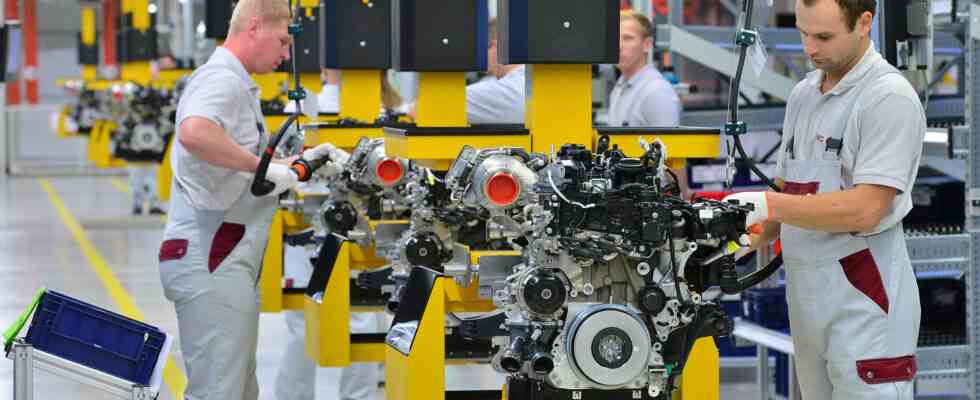Status: 14.12.2022 11:58 a.m
The car manufacturer Mercedes-Benz wants to continue to produce important components for its electric cars in Germany in the future. This secures thousands of jobs in Germany.
After the assembly plants, Mercedes-Benz is also paving the way for the switch to electric cars with investments worth billions in the production of drives and batteries. Specifically, a battery assembly is to be built at the plant in Kölleda in Thuringia, which has previously specialized in combustion engines – subject to the promised support from the state government.
According to production and logistics manager Jörg Burzer, the first facilities at the site with 1,300 permanent employees should start running roughly from 2026 or 2027. In addition to batteries, combustion engines will also be built there for the time being.
Battery production in Kamenz, Untertürkheim and Beijing
In addition, in Kamenz, Saxony, with around 1,500 permanent employees and in Brühl at the Untertürkheim site (a total of 16,000 employees), the ramp-up for batteries for new all-electric models is to start from 2024. This is planned for the Beijing plant from 2025. Batteries are currently being manufactured at all three locations.
Overall, the company wants to spend a mid-single-digit billion amount in Europe and China in the next few years, as announced today in Stuttgart. Mercedes wants to produce half of its cars electrically by 2025 and to be able to build only electric cars by 2030.
Tough struggles with employee representatives
“We have structured the entire production network in such a way that we are highly flexible,” said production manager Burzer in a conference call. The situation in the transition from combustion engines to e-components is complex. “The most important thing is that we can win over colleagues who have built high-quality combustion engines to build powertrains in the future.”
According to the employers and works council, the plans announced today were preceded by a tough struggle over the future of the German locations. Ultimately, none of the powertrain manufacturing facilities are not included in the plans, Burzer said.
No redundancies until 2030
According to the head of the works council, Ergun Lümali, the employees have some requirements in terms of flexibility: If necessary, additional shifts or temporary night shifts are more possible: “We have made no material concessions at all,” he said. At Mercedes-Benz, redundancies for operational reasons are excluded until 2030.
In June, companies and employee representatives had already agreed on a timetable for vehicle plants to switch to electric cars. According to this, the vehicle plants in Bremen, Rastatt and Sindelfingen in the greater Stuttgart area will remain at full capacity for the next decade. Stromer should also be built at other locations. In total, Mercedes will invest more than two billion euros in European vehicle factories by 2026.

